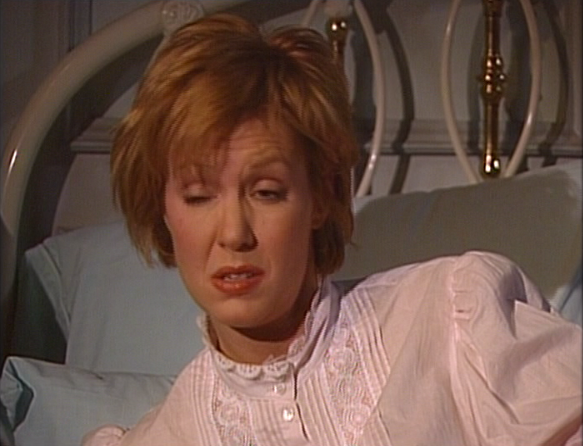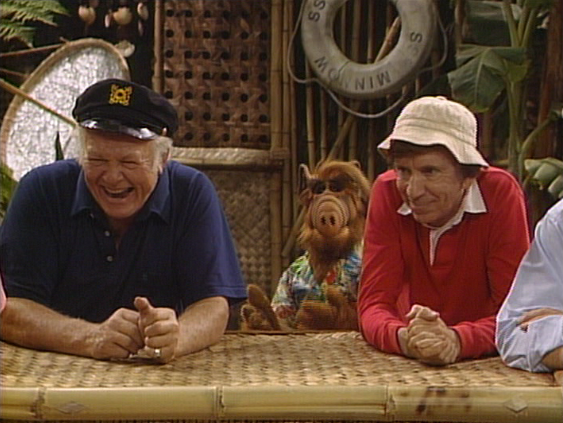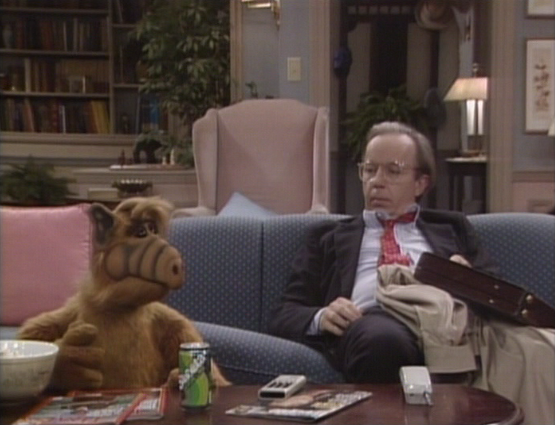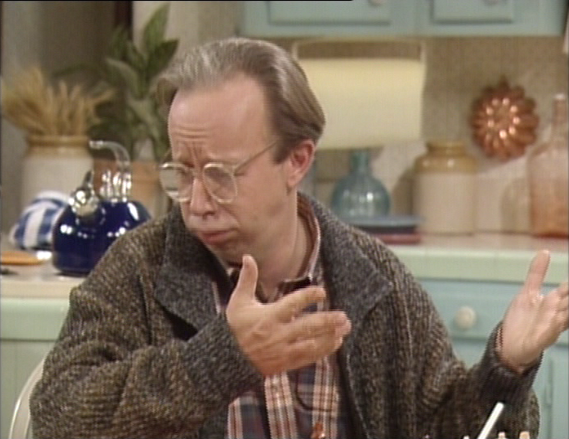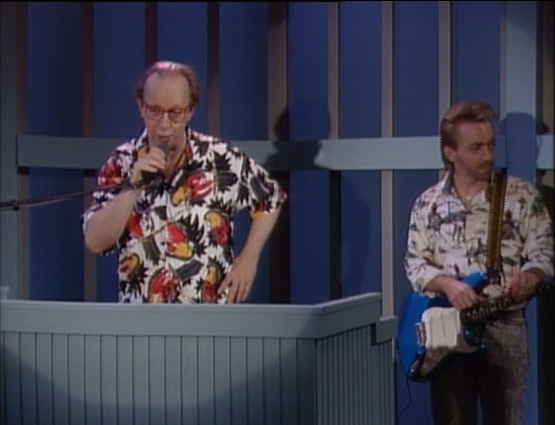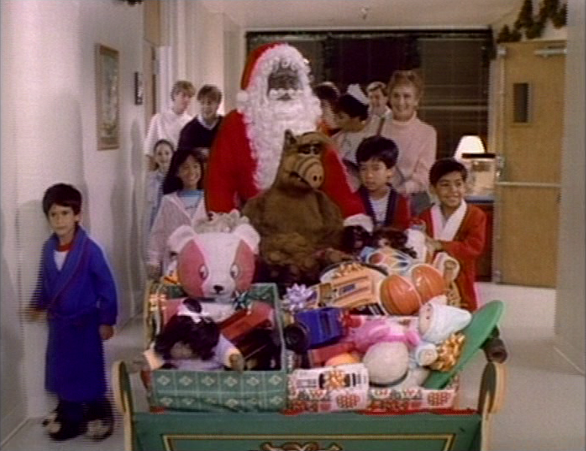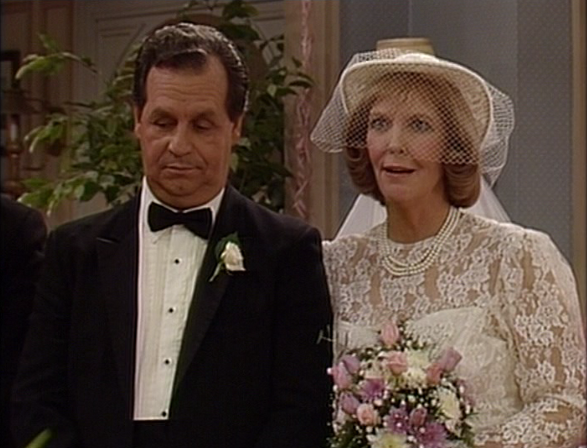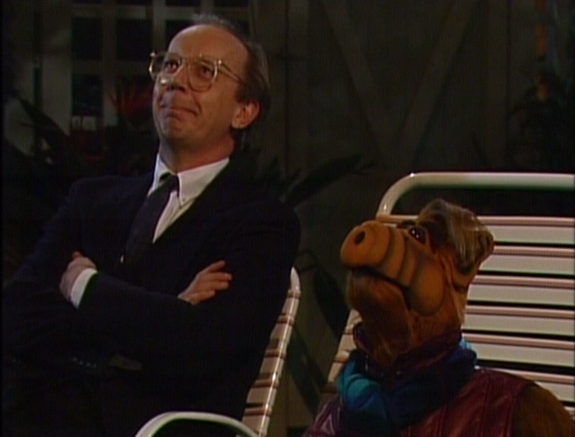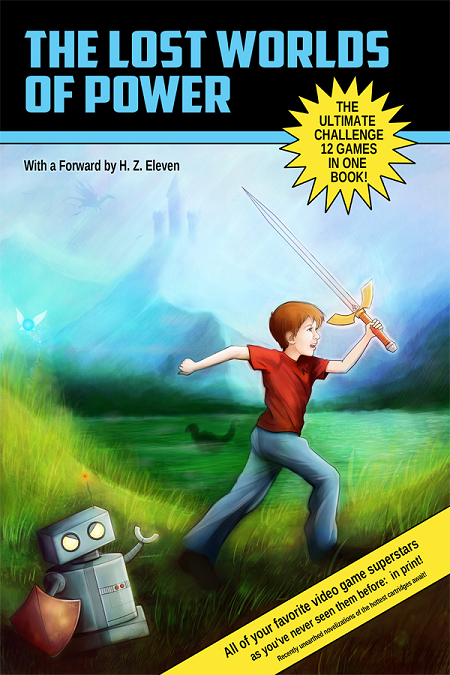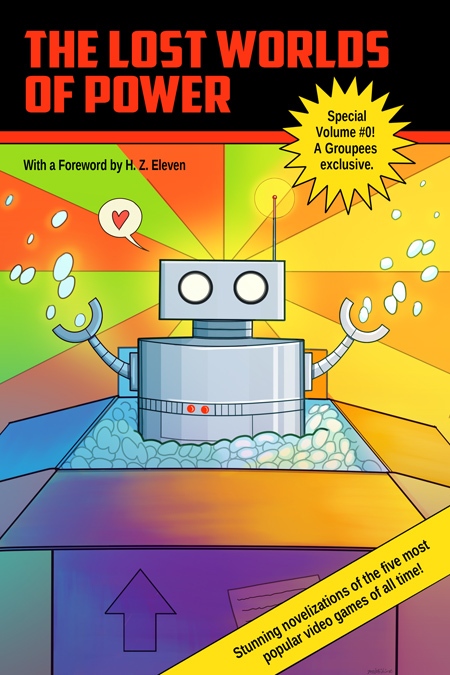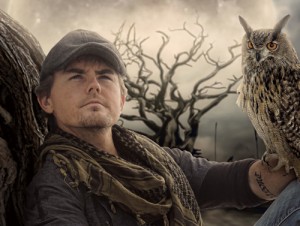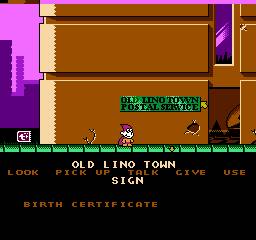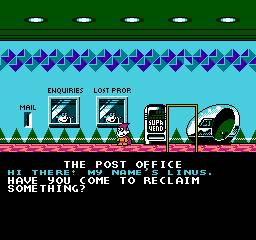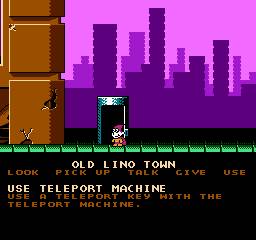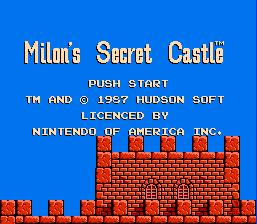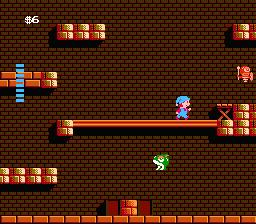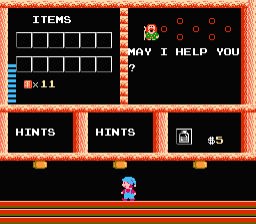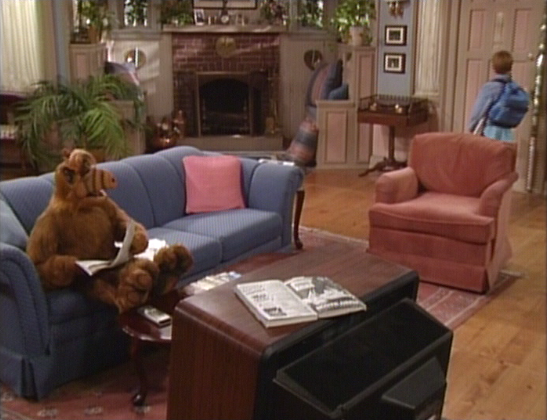
And so, dear readers, we come to the end of season two, and the midway point of this entire project. I’ve been thinking about it, recently, and I have a few things I’d like to say about the experiment as a whole, but since Season Two Reviewed is coming up so soon, I think I’ll save it for that.
Before we dig into this — an episode I’ve been looking forward to since we started and the last episode before the precipitous drop in quality that is season three — I do want to make an announcement. Next week there will be no ALF. That’s because next Thursday is the day that The Lost Worlds of Power is finally getting released. So tune in for that. I promise, it’ll be worth postponing the season two bonus features.
After that, we’ll be back to business as usual. A handful of wrap-up articles, and then we dive headlong into the shallow pool that is ALF‘s homestretch.
Also, I will very soon be announcing the details of this year’s Noiseless Chatter Xmas Stream. If you were there last year, thank you. It was a genuinely great time, and I look forward to surpassing it in every possible way this time around. It’s also going to be a charity event benefiting The Trevor Project, so be sure to stop by!
Anyway, “Varsity Drag.” When I first started doing this project, I saw a few plot summaries. Nothing too spoilery, thankfully…just a sentence here or there about the main thrust of an episode. This one stood out to me immediately, because from the very first episode of this show, there’s been a serious logistical concern that’s never been directly addressed: the Tanner family’s finances.
The first thing ALF did on Earth was destroy their garage, and it’s only gotten worse since. Cars have been wrecked, hotels have been burnt down, and the home has been demolished many times over…often deliberately. ALF has been steadily bankrupting these people, whether the show wanted us to notice that fact or not.
And, here’s the thing: that’s okay. I don’t turn on a new episode of ALF and rage myself hoarse over the fact that it doesn’t open with Willie living in a cardboard box. It’s a sitcom, and you expect a certain elasticity. Especially when…y’know…it stars a naked alien that lives in the hamper.
But I’m interested in this, because it’s a legitimate angle for the show to take. 50 episodes in, it’s understandable that fresh ideas are harder to come by. That’s the case even on great shows. So for ALF to stumble upon something that’s not only fresh, but which digs into a largely ignored tension at the very heart of the show, well, that’s really cool.
Los Angeles isn’t a cheap place to live. The Tanners own a large home in what seems to be a quiet and safe part of the city, which implies that they’re paying more than the vast majority of people who share that city with them. On top of that, they’re a single-income family. And on top of that, Willie is a social worker. Social workers are important, and it’s a noble calling. But if you’ve ever known one, you already know that their salaries are insultingly low. In reality, there’s no way that the Tanners could stay afloat with ALF buttfucking all their earthly possessions to hell and back on a weekly basis.
Not that ALF’s drag on the family’s cashflow has never been mentioned before. It has…but only as the setup to a single joke or sequence. It’s never driven an episode the way it promises to here.
I don’t require “reality” in my sitcoms. I require some recognizable conflicts and dynamics. Good writing helps. Good acting helps. Beyond that? Go nuts.
But here the introduction of this “realistic” problem is tantalizing. It feels like “Varsity Drag” means something, and it’s something that’s been building for the past 49 episodes while we weren’t paying attention. It even ties in with something else that feels suspiciously like forward motion: Lynn going to college.
This could be good. And…a lot of it is.
The episode opens with Brian coming home and cheerily greeting ALF, who barely looks up from his reading material to say hi. It’s remarkable how clearly the lack of interest in this kid shines through. Brian all but ignored by ALF in person, and then when ALF looks through the mail he panics on the grounds that Lynn got an acceptance letter from Amherst College in Massachusetts. If Lynn goes there, she won’t be around anymore, and ALF is devastated.
ALF tells all of this to Brian, who stands there quietly absorbing the knowledge that even the lonely spaceman refugee of an extinct civilization wants nothing to do with him.
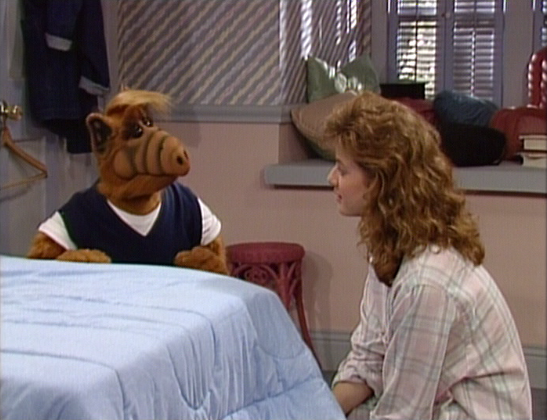
The sight of ALF in a t-shirt and sweater vest is hilarious to me in ways that I can’t even begin to express. He’s doting over Lynn, making sure she understands how sad he will be when she goes away, because the Tanners don’t have any other children. Maybe if they had a son, or something, things would be different. Especially if he was young, because children are full of wonder. It would be easy to forge an exciting relationship. In fact, you’d almost have to work not to. Children are always surprised. Everything’s new to them. An alien playmate from a distant world would be so welcome!
But, alas, it’s not to be. Kate’s womb has shriveled with resentment, and Willie’s penis can only discharge puffs of crack smoke.
A few very nice things happen here. Andrea Elson is still not a great actress by any means, but she’s gotten better at tipping into “very good” territory. Her promise to keep in touch with ALF is adorable, and perfectly in line with the sweet relationship these two passively formed once ALF stopped trying to fuck her. And there’s a little moment of internal giddiness that she plays perfectly when she explains that moving out will allow her to make her own decisions…and her own mistakes.
That’s wonderfully observed. So much of the time, yes, teenagers think they know everything. And that gets them into trouble. But the rest of the time…well, they know they’re getting into trouble, and they do it anyway. Making mistakes is fun. There is a giddiness to it, and coming from a family in which listening to Willie cry himself to sleep qualifies as a hobby, Lynn has a lot to look forward to.
Should she drink too much? Sleep around? Lie about where she’s going? Cheat? Backstab her friends? Slack off on the school work? Spend grocery money on things she doesn’t need?
No, she shouldn’t. And yet…of course she should.
Teens need to make mistakes. Those that don’t…well, they end up making those mistakes as adults, when it’s too late to get away with them.
There needs to be an element of moderation, of course. Lynn waking up with a hangover, for instance, is a mistake…but it’s not as bad as her driving drunk and killing someone. Which is why that level of awareness — and, yes, giddiness — is useful. If she knows she’s making mistakes, she’s aware enough to regulate their severity. She can push the limits of her morals and good sense without pushing the limits of outright stupidity. It’s an important part of growing up, and Lynn barely suppressing her excitement at the fact that she’ll soon get to experience it is one of the highlights of the episode.
Oh, and to go back to the relationship she’s forged with ALF: much like the premise of this episode itself, isn’t it funny how when the writers stop trying to force ideas on the show, something far more natural and enjoyable fills the void?
ALF has potential…it’s just not in the direction the writing staff wants it to be.
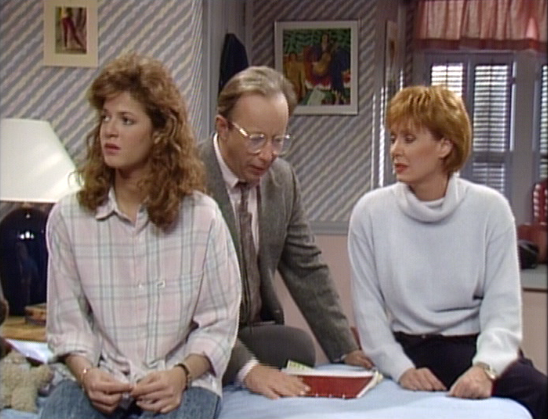
Willie and Kate come in and shoo ALF out of the room, which is usually the best part of any episode. And, snarky as I meant that to be, it really does lead to a pretty great scene.
They need to talk to Lynn alone, because they have some bad news. No matter how they slice it, they can’t afford to send Lynn away for college.
So much about this exchange is perfect. The way the realization dawns on Andrea Elson before she’s told, causing her to turn slowly away from her parents and retreat inwardly to keep from crying. Willie speaking euphemistically about what drained their finances, even though they all know it’s ALF. Kate explaining that the plan was for her to get a full-time job…until their unexpected house guest showed up and needed ’round-the-clock supervision.
These are things that make sense within the reality of the show. I spoke in the “Tequila” review a few weeks ago about the necessity of contrivance. But whereas “Tequila” contrived a situation by saying “fuck it, who cares” and throwing logic out the window, “Varsity Drag” contrives its situation by linking it up with unexpected answers to questions that we should have been asking all along.
Here, at this point, “Varisty Drag” feels like we’re checking in with a family. We can imagine what this might have been like. There’s no way this financial catastrophe is only being recognized by Willie and Kate right now…but what could they do? Tell her sooner and breed resentment? Or wait and hope that she changes her mind about wanting to travel so far for school?
It’s a question with no right or wrong answer. There was no way to come out of this situation on top, so you can’t fault them. Especially when they don’t beat around the bush. They know this is going to upset their daughter…but they tell her anyway. Flat out. ALF’s name doesn’t get mentioned until she calls them on it, but everything else they tell her is honest and direct. They’re doing the last thing any good parent ever wants to do: admit that they’ve let their child down.
Elson’s performance is marvelous here. The news hit me like a gut punch, not because it was unexpected — I’d read this synopsis, remember — but because I believed that it devastated Lynn. From suppressed giggle to suppressed anger in the space of just a few lines, and Elson actually manages to make us believe in it.
Again, she’s not great, but watching her grow so much as an actress has been one of ALF‘s most consistent pleasures.
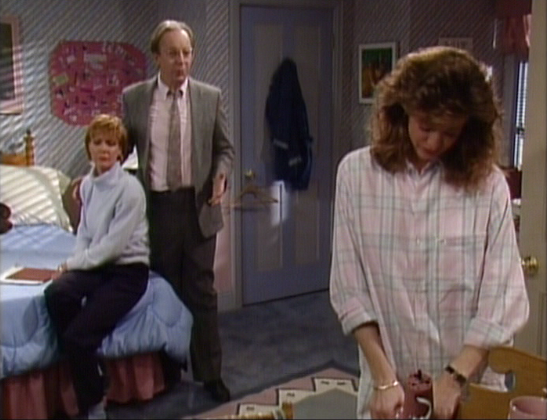
There’s another great moment toward the end of this scene, when Willie begins with “If it’s any consolation…” and you just know it’s going to be painful.
He tells her that they’ve had a rare, one-of-a-kind opportunity to live with and observe a creature from another world. One of the far too rare acknowledgments of just how fucking batshit nuts the premise of this show is. And it gives Willie a chance to nerd out about it for the first time since…I don’t know. The pilot?
His excitability is palpable…and it overrides his awareness of what his daughter is feeling. There’s no laughter here, which means this is being played straight, and that sells the absurdity even better. This is a painful moment…and “Varsity Drag” is smart enough to let it be painful.
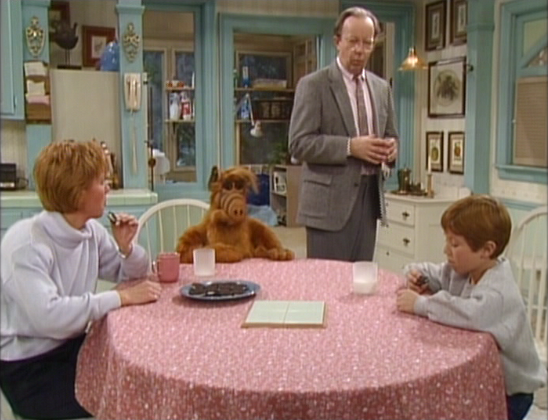
At breakfast (or whenthefuckever) the next day (or whenthefuckever) Brian gives a lecture on how to eat an Oreo cookie, so you really know they’ve given up all hope for this kid. There’s a decently funny line when ALF says that twisting to top off and licking up all the gooey stuff is the same method he uses to eat a jar of mayonnaise. What really impresses me is that they take such a throwaway line (funny though it is) and tie it right back into the plot, having Lynn sarcastically highlight this as an example of the great education she’ll get by staying home.
It’s undercut by some more first-draft writing, though. In “I’m Your Puppet” there was this weird moment where it seemed like Willie was supposed to say “packing peanuts” instead of “Styrofoam,” as only the first would make sense in the context of ALF’s joke that they tasted stale.
Here, ALF concludes that everyone’s upset because they want Lynn out of the house, and he asks if it’s because she drinks milk straight out of the carton.
It makes sense, except that throughout the scene, we see Lynn carrying milk in a glass jug.
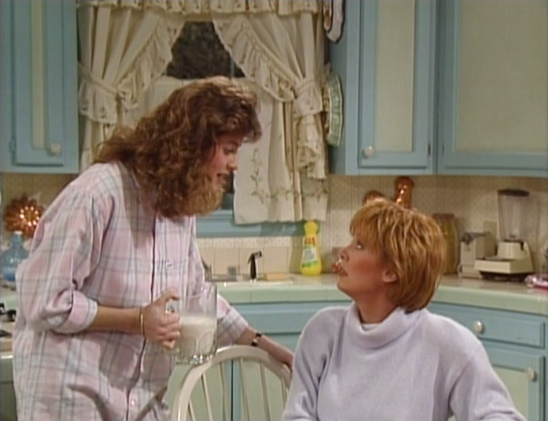
This is the kind of thing that’s likely enough to happen. The writers are doing their thing in one room, and the props department is doing their thing elsewhere. The writers ask for a milk carton, the props department gives them a milk jug. Why not, right? They don’t know there’s a joke relying on it unless they’re told there’s one. And if this lack of second takes and simple rewrites for the sake of continuity tells us anything, it’s that nobody cares enough to get these things right.
Many things could have been done here. Paul Fusco could have changed the word “carton” to “jug” when he said his line. Somebody could have run out for a real carton of milk and swapped out the prop. Or they could have just told Elson not to carry around the jug at all since the joke doesn’t require the visual.
All very simple solutions. And yet, they just keep rolling.
It reminds me of a moment in one of my favorite shows of all time: Garth Marenghi’s Darkplace. It was a parody of poorly-made television, done both lovingly and brilliantly. In one episode, the main character’s superior chastises him and then asks, “Understood?!” The main character sternly replies, “As crystal.”
The joke — not spelled out for the audience — is that the superior got his line wrong, and there was no retake. He was supposed to ask, “Clear?!” But they kept rolling, nobody seemed to notice, and the line that was meant to build upon it was rendered nonsensical.
I am reminded of that moment a lot watching ALF. You get their intentions, much of the time anyway, but the distance between those intentions and the reality of what we’re watching is comically wide. ALF, as much time and agony as it took to make, comes across as hilariously inept. ALF itself is its own best joke.
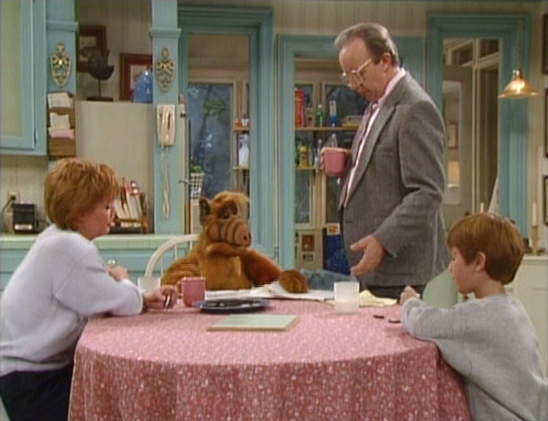
Lynn reiterates her frustrations and storms off, which spurs some nice lament on the part of her parents. It hurts them that they can’t give their daughter what she wants, and there’s a nice dynamic at play here: ALF is the reason they can’t give her what she wants…and they also don’t want to upset ALF.
Put aside the bizarre fact that this, logically, cements ALF as more important to them than their own daughter, and focus only on those points. The ALF writers even at their best aren’t up to the challenge, but that should make for an interesting episode of television. The emotional conflict between letting someone down and trying to avoid letting someone else down would raise the stakes, allowing the jokes to hit harder.
There could also be some fun had with the fact that ALF isn’t quite their child, but they vow not to make the same mistakes with him as they did with Lynn. Again, this show isn’t the one to pull it off, but what a great punchline this episode could have in Willie and Kate scrimping and saving for ALF’s college fund instead.
Whatever. I shouldn’t complain yet, because up to this point, “Varsity Drag” isn’t half bad. It won’t quite remain that way, and the ending is an insultingly massive cop-out, but when even half of an episode of ALF is worth watching, that’s impressive.
ALF starts digging through the budget for the family, which is how he finds out he’s the cash-sink. Kate tells him that the $10,000 expenditure labelled “miscellaneous,” which he directly questions, is what it costs to support him. This leads a nice visual of ALF being taken aback, as well as the first ever good line given to Brian: “I would have guessed higher.”
Then ALF says, “So what you’re saying is…I’m the reason Lynn can’t go away to school.”
And like the pain in Lynn’s bedroom, “Varsity Drag” is smart enough to let this linger. Nobody offers a verbal response at all, which I like well enough. What I like even more is the silently sarcastic “oh well” gesture we get from Kate, immediately before she stands up and walks away:
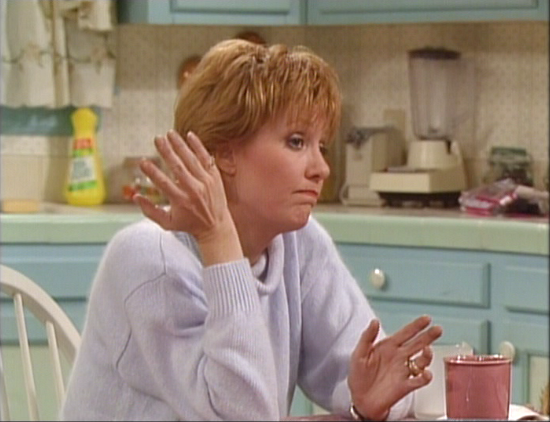
There’s some good acting in this one. I’ll give it that.
Later on ALF summons Willie and Kate the most effective way he knows how: he politely asks where the fire extinguisher is. It’s a good gag, playing into the characterization and moving the plot along.
In fact, this whole first half of “Varsity Drag” just feels so effortless. Like a little bit of magic can seep through when the staff stops trying to force things. Before long we’ll even get to watch it fall apart when they do force something. It’s a pretty striking contrast.
He tells Kate that she will have to get a job, and tells Willie that he’ll need a second one. He even set up an interview for Willie, as a men’s room attendant.
Willie angrily asks, “Do I look like a men’s room attendant?”
To which ALF replies with the last great line in the episode: “No. You look like a Scrubbing Bubble.”
And, dudes, he totally does.
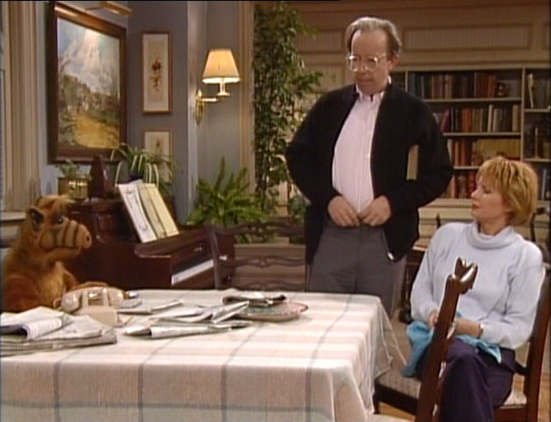
Like, that’s a hilarious comparison on its own. But then you realize it actually sort of fits, which is a whole other layer of comedy.
There’s a moment here in which Willie says that nobody’s getting another job, and they’ll just have to make sacrifices. ALF asks if that means they’ll throw him in a volcano, and the joke is that Willie waits too long before saying no.
But it doesn’t really work. Max Wright doesn’t lose himself in consideration the way Anne Schedeen has (such as the scene in “Can I Get a Witness?” when she and ALF lock eyes in what seems almost like a psychological game of chicken). Instead, he just pauses. He knows he’s supposed to wait before delivering his line, so he waits. And that’s all he does. He waits for a while, yes, but since that’s all he does it took me a bit to understand why it was even supposed to be a joke.
ALF suggests getting a job himself, to which Willie replies “Nigga plz.” Then the adults go to bed, secure in the knowledge that leaving ALF alone with the want-ads will lead to no wacky developments whatsoever.
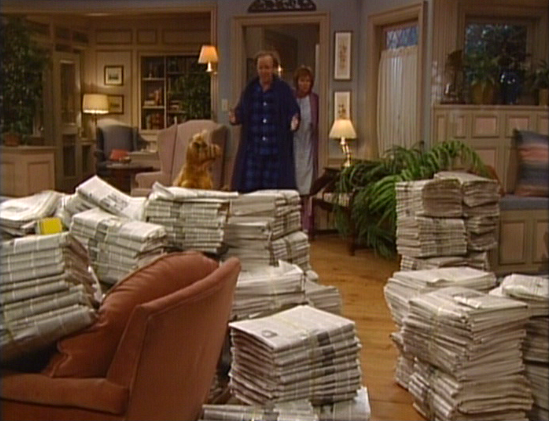
OOPS
Later that night ALF wakes Willie and Kate up to show them the living room, which is full of newspapers. I feel as though ALF leading people into the living room to show off his latest dumbass attack is an unsung hallmark of this show. I know it happened in “Oh, Tannerbaum” with the ruined tannerbaum, and in “We Gotta Get Out of This Place” with the relocated furniture, but I’m sure I’m missing at least a half dozen more examples that I’ve successfully erased from memory.
Willie asks what they’re doing there, and Kate — sagely — says “Let me guess,” correctly positing that ALF has become a paperboy. I like that Kate has become aware of her own show’s wackadoo approach to plot development.
ALF…yeah. Somehow he’s a paperboy with ten paper routes already. And he has all these newspapers even though he can’t leave the house. So I guess somebody just walked into the living room and left this shit here without waking anyone up or seeing ALF. It’s a hell of a leap over several important logical points, but I’ll come to that in a moment.
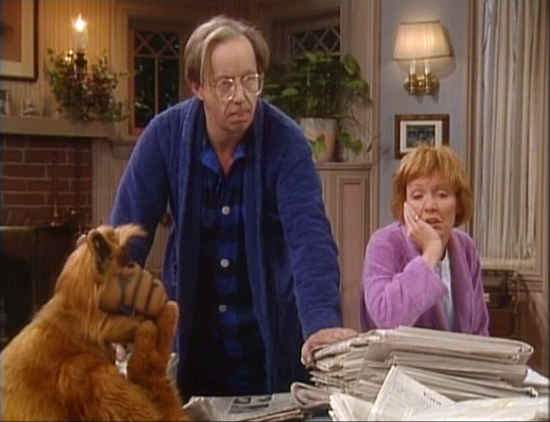
It’s not a great scene by any means, but there are a few cute bits in here. One example is ALF telling Willie that the newspaper company gave him five hundred and one copies by mistake, followed by a conspiratorial little laugh. Another is Kate telling him that he can’t deliver the papers. He replies, “Sure I can! You haven’t seen my throwing arm,” followed immediately by Willie grabbing ALF’s wrist so he can’t demonstrate.
But that’s also where the episode goes off the rails, because next we see…
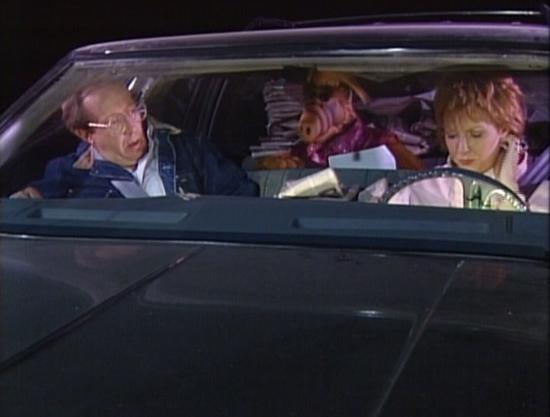
This. And you can feel the writers forcing something that is doomed not to work.
It’s the big setpiece of the episode, dominating the second half, and yet it’s really not that funny. It’s not even that funny an idea. Willie and Kate deliver papers while ALF sits in the back seat cracking jokes? It’s the kind of thing that might have worked as a vague pitch (“How about, I dunno, ALF gets a paper route?”), but by the time someone sits down to type it, it’s painfully apparent that they had no idea where to go from there.
Consequently, a massive chunk of the episode is consumed by watching Kate and Willie cruise around for no actual reason. I’ll say more about this shortly, but for now, I remember a while back that a commenter said that every time we see the Tanners driving around, it takes place at night.
With only one exception (“On the Road Again”), I think he’s been right. It stands out to me, and I’m not sure why they did this. Maybe just because they get to save on the money they would have used to light a daytime set. Whatever it is, it’s odd.
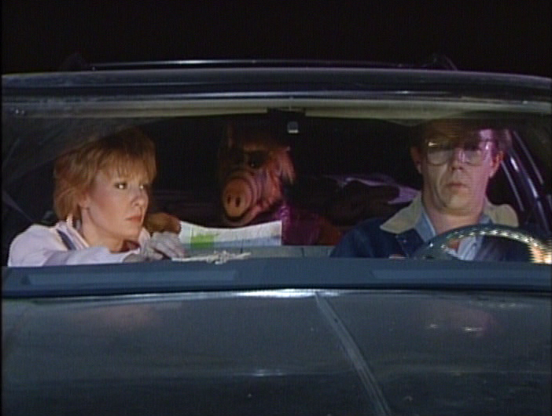
So, yeah, the writers take a natural — and overall quite good — narrative, and reduce it to an excuse to get these idiots in car delivering newspapers…even though they don’t have any good jokes to go along with it.
But, unlike last week, I don’t hate it.
I want to take a moment to spotlight this comment left by kim, who might be the only person to have commented on all of my ALF reviews to date. (The rest of you slackers need to catch up, stat.)
ugh. obviously you didn’t get this episode at all.okay, I’ll explain it for you. jake’s graduation party is mentioned because it is party ALF would like to go to, but he can’t because of the fear being seen by the public. ALF gets really bummed about it and finally had enough of hiding, so that we he decided to reveal himself to the world in a press release. the first dream sequence is suppose to be what willie is imaging would happen to ALF if he reveal himself to the public. the second dream sequence is what ALF imagines if he would reveal himself to the public, he thinks he will become famous and host is own talk show I guess? which really would of made better sense if the roles were revised, david letterman was the talk show host and ALF just be the guest host. the point of the documentary with the orangutang was to show ALF would only make things worse for himself if he decided to go public, the orangutang was last of it’s kind and died because it spend the rest of it’s life in captivity without any interaction to the outside world, willie thinks the same thing will happen to ALF once he gets captured by the alien task force. then ALF realizes the big mistake he just made and decide to call off the press release, i think Robin Leach refs to one of the reporters or talk show hosts is was going to meant i guess. ALF becomes depressed because he now realizes he is forever struck to a life of loneliness and isolation and the tanners throw him a surprise party with all his friends to show is not as lonely as he thinks he is. *phew*
And I’ll admit that I was playing up my confusion for the purposes of being funny. “We Are Family” was a shitty episode, but I understood its theme, and I saw it carry through the episode.
The reason I was being so snarky and hard on it was…well, read that comment. That comment is a summary, and it’s still absurdly long. Even poor kim has to take a breath after getting through it.
I don’t hold this comment up to laugh at it. Not at all. It’s a valid comment, but I do think it unintentionally illustrates the problem with that episode. While its main theme was clear, its method of exploring that theme was preposterous.
There’s no reason for a simple “ALF is lonely” concept to incorporate hallucinations of government custody, interviews with Sandy Duncan, and Ugandan orangutan documentaries. These are disparate pieces forced to serve the hazy idea of a plot, as opposed to natural outgrowths of what we’re watching.
So, yeah. I’m aware that ALF was sad, and I can make an argument for how all of that might — in some distant way — tie into that theme. But “Varsity Drag” shows us how it should actually be done.
As much of a letdown as the second half of this episode is (enough of one that I’m going on this rant instead of even talking about it), the theme is explored through natural, identifiable progression:
Lynn is accepted to college. Lynn is excited about it. The family can’t afford to send her, because ALF’s drained their finances. ALF feels bad, so he gets a job to make up the difference.
That’s every plot beat. Kim’s comment above contains every plot beat of “We Are Family,” but, by contrast, it’s far longer, and any given part of it needs an explanation of how it ties into what the fucking episode is about. If you need that many plot beats in a half-hour sitcom, you’re not telling a story; you’re just showing us a bunch of stuff.
“Varsity Drag” has no such issues. It has other issues, but as far as organic plot development goes, it’s perfect. Even the throwaway jokes tie, for the most part, into its theme. We don’t need to be reminded about what we’re watching, because the episode never forgets it.
That’s why I’m so hard on episodes like “We Are Family” and “Strangers in the Night.” This isn’t a great show, but it certainly doesn’t need to slide so deeply into incompetence. Whether it’s funny or not, it has every ability to tell a coherent story, and I don’t think that’s too much to ask from it, either.
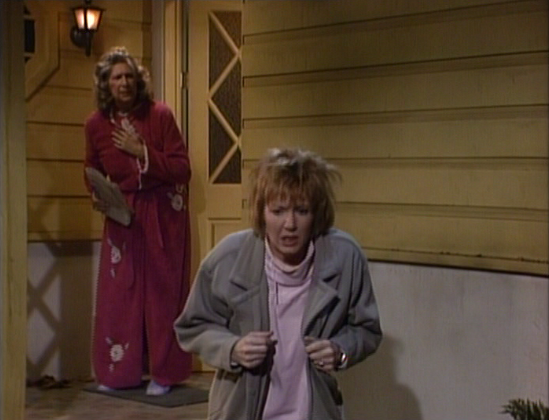
The only delivery that matters at all is the final one, to Mrs. Ochmonek, who catches Kate dropping it off. She comes out and tells her with a tone of serious concern that she didn’t know the Tanners were so hard up for money. Kate says that they’re just trying to earn a little extra money to send Lynn to college, but Mrs. Ochmonek is still worried, and offers the Tanners a place to stay if things get worse.
In the next scene, she comes over with canned goods to help them out financially. It’s a big joke to the show, because Mrs. Ochmonek is such a stupid busybody!!!
And yet, once again, when’s the last time the Tanners have done anything nice for anyone? Willie’s a social worker, but the Ochmoneks seem to be the only ones who care about their fellow man. He wouldn’t save them from a burning building, but they’ll drop everything at any time of day to bring the Tanners food if they think they need it.
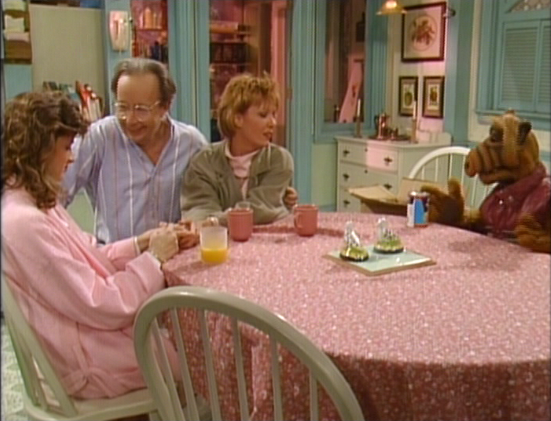
It’s even more nice of them when you remember that the Ochmoneks have never been portrayed as well-off. To give away a box of food is probably a grander gesture for them than it would be for most families.
And yet we’re supposed to side with the Tanners, who look through the shitty selection of cocktail onions and chickpeas, and snicker and guffaw and say THOSE FUCKIN TARDS.
The show has no idea what it’s doing. I’ve used the Flanders family as a counterexample before, and I’ll use them again now. Only in rare cases was the joke on the Flanders family. More often, the joke was that Homer hated them so much in spite of what great neighbors they were. If Ned was ever the butt of a joke (at least in the golden years) it was because he was too much of a pushover, or too devoted to his religion. Neither of those things, it’s important to note, are inherently bad things. That’s why, most of the time, he and his family were able to serve as model citizens…much to Homer’s undeserved chagrin. That’s funny.
ALF wants us to think of the Ochmoneks as the neighbors from hell, but they are inadvertently painting the Tanners with that brush. These are the people we’re supposed to identify with: these people who laugh and tease and put down those who step in to help them. We’re not meant to identify with Homer when he’s mean to Ned; we’re meant to laugh at him. Here, we are asked to identify with the people being so rude and dismissive.
And that’s massive shitness.
Not quite as shit as the end of the episode, in which everything is wrapped up with Lynn saying, “Fuck it, I don’t need to go to Amhert, I don’t know what came over me, I was totally riding the cotton dildo.” Then they all hug and fuck it.
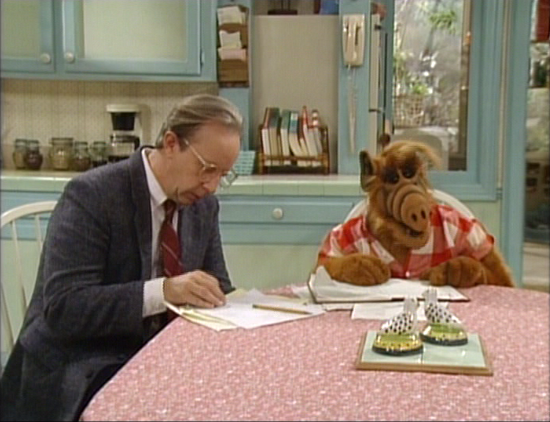
In the short scene before the credits ALF makes a joke about eating the cat.
It’s a shame to see such a great opening half fall apart so catastrophically. And, yet, it does follow a kind of internal logic. The resolution is a bit pat, but we get a sense that Lynn’s flattered enough by what her family did (worked for like, two hours, yippee shit) that it’s put some things into perspective for her. It’s only a sense, as the episode doesn’t leave it any room to breathe. Much better to eat up all that time of Willie and Kate pretending to drive while ALF babbles nonsense at the back of their heads.
The plot, unlike last week, holds together. It’s just a shame that the writing, by contrast, falls apart. It’d odd to look at the first half of this episode, and then the second, and believe that they came from the same show, but, again, I’ll take half a good episode than the wall to wall garbage we usually get.
And that, my friends, brings us to the end of season two. Join me soon for the recap…before we trudge on into murky depths of season three.
I can’t thank you enough for sticking with me through the first half of this project. May the second half be even better. I love you all.
MELMAC FACTS: On Melmac, $10k could support a family of four for one year. Willie went to Amherst, and judging by some lines in “Tequila” we can conclude that Kate went there as well.
